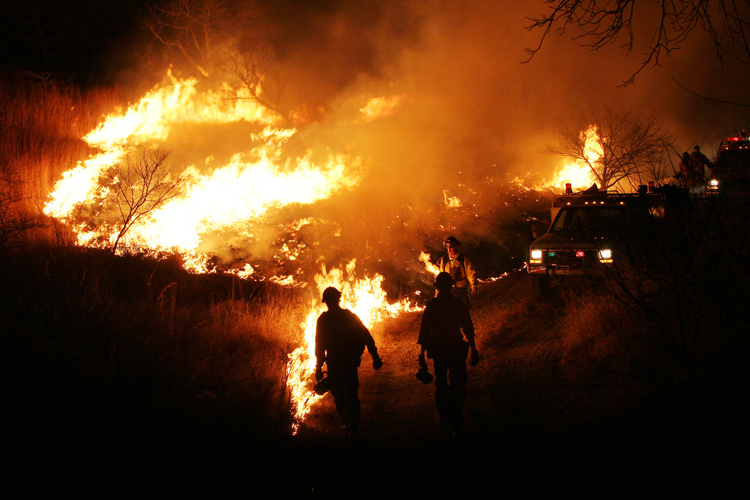Get ahead of the chaos with a unique Master of Science in Disaster and Emergency Management degree from Nova Southeastern University's College of Osteopathic Medicine. Ranked first in the nation for interprofessional emergency management education, this program will strengthen your professional skill set and provide you with cutting-edge training to manage and mitigate the most complex issues.
You'll have access to some of the country's best educators in the field, plus connections to community organizations to get firsthand experience. Graduate with a core knowledge and a portfolio demonstrating your abilities.
Connect With a Larger Community as You Enrich Your Career
With online, evening courses, you’ll have minimal interruptions to your daily life and current career. And since hands-on learning is critical to emergency management, you’ll work with your professors to get connected to community partners to participate in practicums and volunteerism as part of the program’s mission of service.
What Is an Emergency Manager?
The essential emergency manager plays a vital role in helping communities, businesses, and public agencies recover from a spectrum of disasters. Job growth in the field is predicted to remain strong-the U.S. Bureau of Labor Statistics forecasts an 8% growth rate until 2026 and organizations at the local, national, and international levels are investing heavily in the field.
Quick Facts
For Summer Admission: April 15
For Fall Admission: August 1

With NSU, I’m becoming a more effective leader for my community, my country, and the next generation of emergency managers.
Pablo Nieves, Combat Medic, Firefighter Graduate Student, M.S. | Disaster and Emergency Management

NSU’s M.S. in Disaster and Emergency Management has expanded my skill set in dealing with emergencies and everyday problems. It has taught me to plan ahead and anticipate problems before they occur. My employer has valued these skills by appointing me to the hospital’s emergency management committee. I was also elected to the board of directors for the regional healthcare emergency readiness coalition which covers all types of healthcare providers in our twelve-county region.
Tony Swicer, D.O., M.S. DEM, M.P.H. M.S. | Disaster and Emergency Management Alumnus

I developed a thorough grasp of disaster preparedness, mitigation, response, and recovery techniques through a multidisciplinary program. The curriculum ensured that I was prepared to lead and assist efforts to protect communities and save lives in the event of natural or man-made disasters by merging theoretical knowledge with volunteering practical abilities.
Susie Gilot, M.S. | Disaster and Emergency Management Alumna

The professors in the Disaster and Emergency Management Graduate Program are not only experts in their field but are also deeply passionate about what they teach. Their enthusiasm and dedication are contagious, making every class engaging and inspiring. One aspect that truly sets these professors apart is their eagerness to support students both inside and outside the classroom.
Samantha Pryde, M.S. | Disaster and Emergency Management Alumna

Understanding the dynamics of disaster management has equipped me to appreciate the importance of adaptability, leadership, and rapid decision-making in health care settings, which are crucial qualities sought after in medical professionals.
Silvia Cabal, D.O., M.S. | Disaster and Emergency Management Alumna
Why Earn Your M.S. in Emergency Management at NSU?
Community Partnerships
From assisting with disaster relief from recent hurricanes to providing support in donor recruitment for the Medical Reserves Corps’ participating with the Community Emergency Response Team, students of the DEM program are actively participating in community partnerships and getting valuable, real-world experience.
You’ll be able to easily find your fit for your final practicum thanks to our partnerships and connected community organizations.
Disaster and Emergency Management M.S. Curriculum
From the local to the international level, you’ll study the theory of emergency management and develop the skills required to be a leader in this interprofessional field. All students cover the areas of all-hazards prevention, response, mitigation, and recovery. You may choose a specialty track in maritime safety and security, cyber security, criminal justice, public health, fire administration or environmental hazards.
After Applying, What Happens Next?
Depending on the time of year, the review process may take a few weeks. You can check your application status at any time via the online application portal. Once a decision has been made, notification is sent via email to the address on file.






